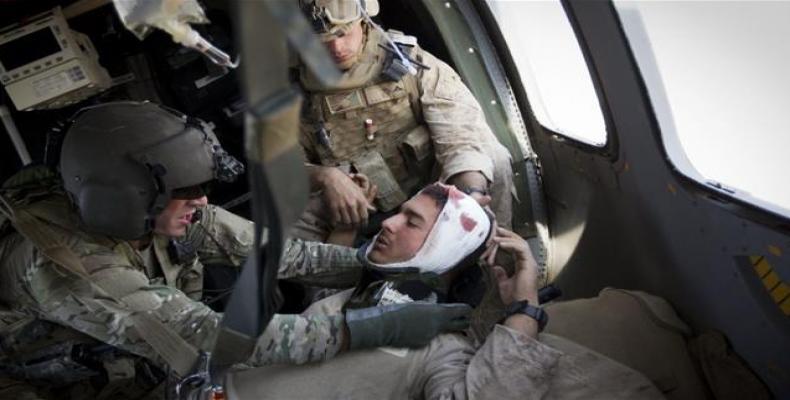Washington, February 1 (RHC)-- The Pentagon has yet again raised the figure of soldiers wounded in Iran's retaliatory missile attack in Iraq earlier this month to 64, saying they have suffered “traumatic brain injuries.”
Pentagon chief Mark Esper and chairman of the Joint Chiefs of Staff General Mark Milley said Thursday the military took these types of injuries “very seriously” after criticism that the authorities sought to whitewash them. "The number is growing," Milley added, explaining that it takes time to diagnose and screen soldiers present in the area at the time of the attack.
The New York Times cited a Pentagon statement, which put the total number of injured troops at 68. The report said eight troops were currently being treated in the United States, 21 in Landstuhl, Germany and that another 39 injured troops were treated and have returned to military operations in Iraq.
The new tally marks at least the fourth instance where U.S. officials have raised the number of troops injured following Iran's January 8 missile attack in response to Washington's assassination of top anti-terror commander General Qassem Soleimani on January 3rd.
The report cites Danish soldiers as commenting in an interview with a Danish TV 2 correspondent. The Trump administration at first claimed that no Americans had been injured in the attack. "We suffered no casualties, all of our soldiers are safe, and only minimal damage was sustained at our military bases," President Donald Trump said a day after the missile strike.
A week later, however, the U.S. military said 11 had been injured in the attack. Last Friday and on Tuesday, the tally was brought to a total of 34 and 50 respectively, drawing added scrutiny and criticism against the Trump administration's initial claims of no casualties.
Trump has, nonetheless, sought to play down the reports, saying he "heard they had headaches." “I don’t consider them very serious injuries relative to other injuries I have seen,” he said last week.
The comments were slammed by Veterans of Foreign Wars (VFW), the oldest major American veteran organization which demanded Trump to apologize for his remarks. “Traumatic brain injury (TBI) is a serious injury and one that cannot be taken lightly. TBI is known to cause depression, memory loss, severe headaches, dizziness and fatigue — all injuries that come with both short- and long-term effects,” VFW national commander William Schmitz said.


